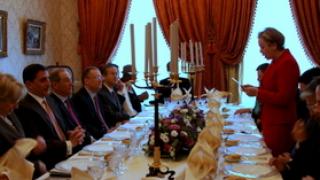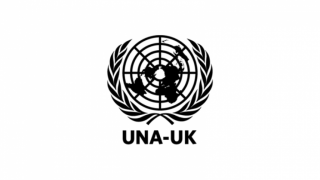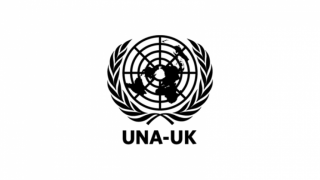
On 22 January, the Moroccan Embassy generously hosted a lunch discussion as part of UNA-UK’s diplomatic engagement programme.
18 representatives from the London diplomatic community came together to discuss their views on the United Nations Security Council (UNSC) and their hopes for its future. Many of the ambassadors had personal experience as part of their countries UN delegations, four of the diplomats represented France, the Russian Federation, the UK and the US (the P5 or permanent member states), three diplomats represented countries that have been newly elected as non-permanent member states: Jordan, Lithuania, Nigeria; and South Korea which is halfway through its term as a non-permanent member. Morocco has just finished their tenure as a non-permanent member on the UNSC and Nasser Bourita; Secretary General of the Moroccan Ministry of Foreign affairs, shared his reflections on the extent to which non-permanent member states can set the tone of UNSC during their term.
Calls for greater democratisation came from the ambassadors from the non-permanent member states. Ambassadors discussed options for UNSC reform, with a focus on expansion, but also on procedural and operational options.
The existence of the veto power was cited as a mechanism that can both hinder and improve the UNSC’s efficiency.
There was recognition of disadvantage against non-permanent members as they do not have the same institutional knowledge as the P5. In turn P5 ambassadors spoke of the responsibility to prepare new non-permanent members to ensure the smooth running of the Council.
Improvements in the running of the UNSC over the last eight years were noted including the consistent progress on monitoring peacekeeping and peacebuilding activities (although many Ambassadors wanted this to go further); and the gradual introduction of thematic debates which was believed to improve the understanding of contextual issues therefore improving the quality of decision making.
Recent disappointments were highlighted suchas the reduction in the sponsorship of resolutions by non-permanent member states.
The responsibility of membership and particularly chairmanship which rotates to all permanent and non-permanent Council members was noted. The importance of picking issues that are of importance to the world rather than just your countries own region or bloc of political allegiance was recognised.
The ambassadors from countries who have recently joined gave examples of their priorities including:
- Protection of civilians in armed conflict (including from sexual violence)
- The rule of law
- Small arms
- Child soldiers
- Preventative diplomacy
- Conflicts including: Syria, Sudan/South Sudan, Somalia, Israel/Palestine and Guinea Bissau
The diplomats in attendance expressed optimism for the future of the UNSC and their part in it. While the ambassadors from the P5 member countries stated their governments’ recognised the need for institutions such as the UNSC to evolve they were not yet convinced that appropriate mechanisms had been identified. Agreement was reached on the need for reform to be debated by all UN member states to ensure equality.






